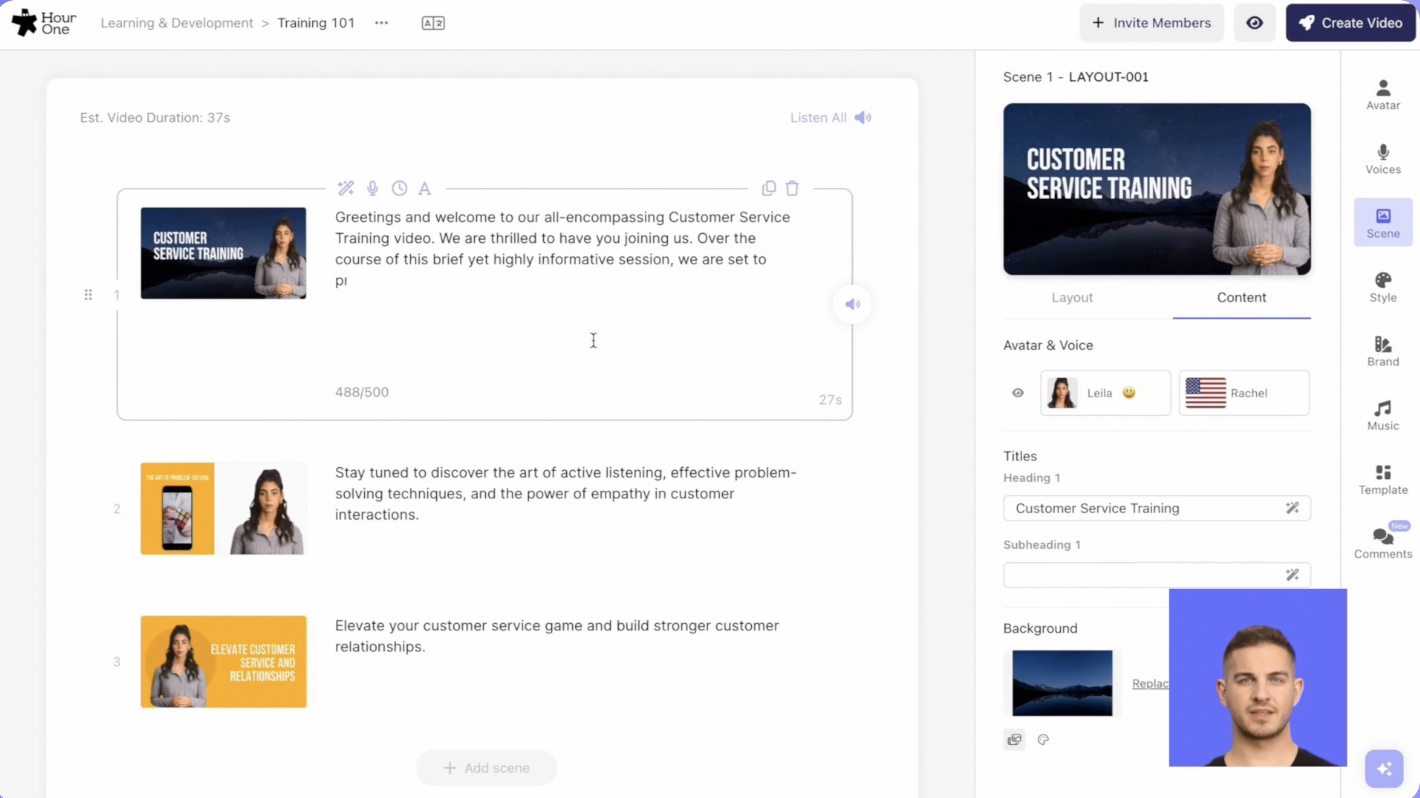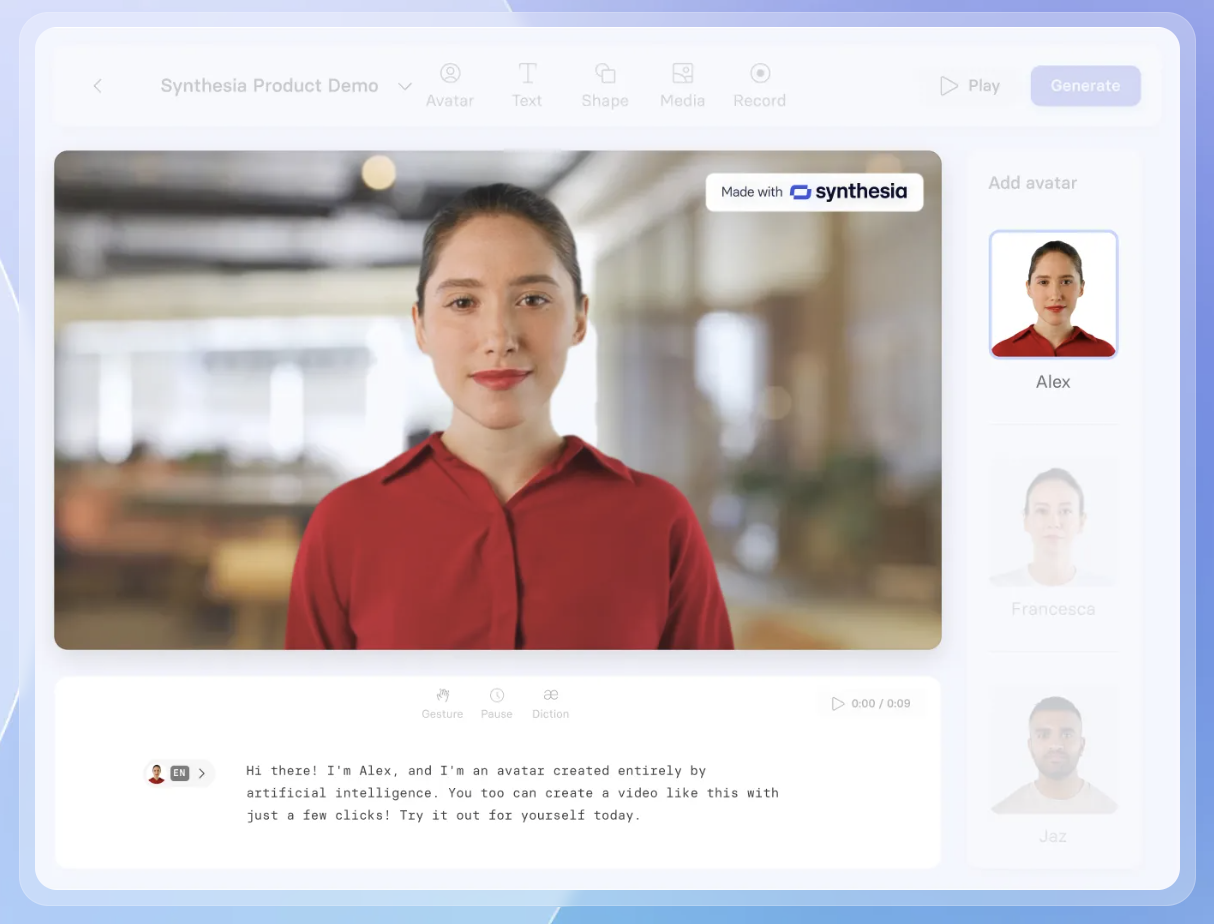All Posts
8+ Best Lip Sync Video APIs [2025]


In our digital era, one of the best ways to reach a wider audience and grow your business is to embrace multilingualism. SEO statistics reveal that multilingual websites can reach 75% more internet users whose primary language is not English, and 60% of global consumers prefer to browse sites in their native language.
These statistics reveal just how powerful multilingualism can be as a business strategy. For developers, providing users with accurate, synchronized lip-syncing across languages can significantly enhance communication and accessibility. That’s where a top-rated lip sync video API can help.
Lip sync video APIs utilize facial recognition algorithms and machine learning to understand lip movements and match them to translated audio.
Tavus’ Conversational Video Interface (CVI) and video generation render photorealistic talking‑head video with pixel‑accurate lip sync across languages. You can generate speech out of the box or bring your own audio, and Tavus’ in‑house models match precise facial movements and expressions so your AI human speaks naturally in 30+ languages—empowering teams to create multilingual video content directly in your application.
Lip sync video APIs utilize facial recognition algorithms and machine learning to understand lip movements and match them to translated audio.
With Tavus, you can generate speech in 30+ languages or upload your own audio (“bring your own audio”). Tavus then renders video with natural lip movements and expressions using its Phoenix‑3 face‑rendering model, or produces dubbed outputs that align the new voice with the speaker’s mouth movements—including when using voice cloning to match the original voice.
Traditional lip syncing, or manual synchronization, requires manual adjustment of lip movement timing to match your audio track. Editors who do manual sync need skilled attention to detail, and the process takes a significant amount of both time and effort.
Lip sync video APIs utilize auto synchronization, which involves software that relies on AI tools to analyze the audio track and generate lip movements to match. Platforms like Tavus can work faster and do the job for you, saving you time and money.
Let’s explore the best lip sync video APIs on the market.
While Tavus has undergone a transformation and no longer supports standalone lip sync as a feature, its Conversational Video Interface (CVI) and Phoenix‑3 renderer deliver industry‑leading, photorealistic lip syncing as part of real‑time, face‑to‑face AI conversations and video generation.
Get started with a free Tavus account and begin exploring the endless possibilities of conversational video AI.
Get started
The Sync Labs API offers real-time lip-syncing to dub audio and video content in many different languages. It’s compatible with movies, podcasts, games, and animations. Users need only upload audio and video files and Sync Labs will synchronize the two.

Key features:
Pricing:
Enterprise: Contact Sync Labs for pricing.

AKOOL’s lip sync API offers developers access to AI models trained on a large dataset of audio and video. As a result, AKOOL’s model understands typical lip movements in all its target languages, allowing for realistic generated lip movements synced to translated audio.

Key features:
Pricing: Contact AKOOL’s sales team for pricing information.

Everypixel Labs’ lip sync API allows users to reproduce a person’s lip movements in a video to match multiple languages. Users can simply upload a video of their actor or character from specific angles, add their audio track, and let Everypixel provide a high-quality dubbed video.

Key features:
Pricing:

Colossyan’s platform provides users with easy tools to create videos. Users can choose from Colossyan’s AI avatars and generate videos using the text-to-speech functionality. With real-time lip sync, Colossyan provides realistic videos in a variety of languages.

Key features:
Pricing: Colossyan’s API is only available as an add-on to their Enterprise plan. Contact their sales team for pricing information.

HeyGen is an AI platform for video generation that uses AI avatars and voices. HeyGen’s API allows developers to integrate HeyGen’s video generation tools into their own apps and platforms so they can automate personalized video generation within their workflows.

Key features:
Pricing: HeyGen’s API is only available with their Enterprise plan. Contact their sales team for pricing.

Hour One is an AI video generation platform that allows users to automate their video production at scale. The Hour One API enables seamless integration between Hour One’s AI tools and developers’ own apps and platforms.

Key features:
Pricing: Hour One’s API is only available with their Enterprise plan. Contact their sales team for pricing.

Synthesia is an AI video generation platform that provides virtual avatars to perform or narrate users’ scripts. With a variety of avatars and languages to choose from, users can create realistic videos at scale.

Key features:
Pricing: Synthesia’s API is available as part of their Creator and Enterprise plans.
Enterprise: Contact their sales team for pricing.
We’ll review a few common use cases for lip sync video APIs.
With lip sync video APIs, your users no longer need to spend the time and money required for manual lip syncing during post-production. AI lip sync technology can accomplish the task for them in minutes!
A platform like Tavus lets you offer this capability without building it from scratch—generate speech or bring your own audio, and Tavus automatically syncs expressions and lip movements behind the scenes so you can focus on your core product.
If your users limit their marketing or educational content to one or two languages, they’re missing out on quite a few potential audience groups. Deploying lip sync video APIs into your platform can help your users break language barriers to reach more people and grow their organizations.
Salespeople have long understood the power of personalization in marketing. One of the top strategies for making a sale is creating a connection, and using names and other personal details is one of the most powerful ways to do so. Deploying AI lip sync makes it possible for your users to spread that personalization across a broad audience.
Developers use video APIs like Tavus to enable personalized video marketing at scale. Lip sync technology ensures the individual changes still look realistic by matching avatar lip movements to each new variable.
Do your users need a translated video ASAP? No more making users wait for high-quality voice overs or manual lip syncing! With Tavus’ AI lip sync and text-to-speech technology, they can generate high-quality, realistic video content in minutes. If they want those videos to use their own image, they need only upload a quick training video and let Tavus’ avatar generator do the rest.
We have answers to any lingering questions you may have about lip sync video APIs.
Lip sync video APIs can provide benefits for a variety of industries. Filmmakers use lip sync to change the film industry and improve viewer experiences of foreign films. Marketers can create personalized videos at scale and translate their videos into other languages to broaden their reach. Education may become more accessible if users around the world can access educational videos in their native language.
But lip sync AI can make a difference in other areas that haven’t yet been explored. AI lip sync tech can generate accurate subtitles that align with lip movements to provide a seamless experience for people with hearing impairments. Medical professionals can benefit, as well, with highly realistic training videos and simulations thanks to AI lip sync.
These uses and more make AI lip sync a valuable tool for a broad range of industries.
Although lip sync deep fakes are becoming a cause for concern and potential targets for legal action, lip sync video APIs are legal. As long as you are replicating your own voice or an AI voice licensed through a reputable API, AI lip sync is legal and ethical.
At Tavus, we pride ourselves on providing tools for ethical deepfakes. Tavus allows you to replicate only your own image and voice, and we employ a suite of consent mechanisms and safety checks to protect your likeness and data.
Absolutely. Real-time lip sync can be used to create highly realistic experiences in livestreams, live chats, and more.
If you’re looking to integrate video translation or personalization capabilities into your application, lip sync video APIs can help you achieve your desired results without sacrificing quality. Your users will get highly realistic videos to represent their brand without the time, money, and labor of traditional translation, voiceover, and lip sync processes.
Tavus’ Conversational Video Interface (CVI) and video generation can help users achieve translation and personalization needs straight from your platform. Let Tavus do the work for your team! We’ll help your users reach broader audiences with over 30 languages, bring‑your‑own‑audio support, and photorealistic lip sync that looks and feels natural.